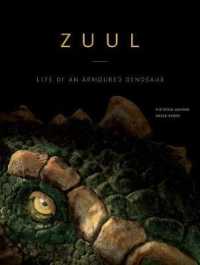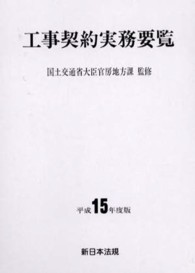- ホーム
- > 洋書
- > 英文書
- > History / World
Full Description
Paul Preston's The Coming of the Spanish Civil War is widely regarded as a classic account of the collapse of democracy in Spain and the and outbreak of the civil war. In a narrative that paints a picture of picture of a deeply divided country, he coherently and excitingly outlines the social and economic background to the conflict. Explaining Spain's predicament as a predominantly poor, agricultural country riven by economic inequality, Preston deftly shows how the Republican-Socialist coalition's attempts to reform Spain in the early 1930s were continually undermined and thwarted by right-wing parties and factions. The incompatible interests represented by these two mass parliamentary parties - those of the landless labourers and big landlords, of industrialists and workers - spilled over into conflict which could not be contained within the parliamentary arena, leading ultimately to the outbreak of conflict in 1936.
Drawing on archives, diaries and letters of major protagonists, The Coming of the Spanish Civil remains the definitive account of a conflict whose legacy is still being confronted in Spain today.
This Routledge Classics edition includes a new Preface by the author, in which he reflects on how the book came to be written.
Contents
Preface to the Routledge Classics Edition Acknowledgements List of Abbreviations Prologue 1. The Origins of the Socialist Schism: 1917-31 2. Building Barricades Against Reform: The legalist Right, 1931-3 3. Social Democracy and Social Conflict: The PSOE in power, 1931-3 4. The Politics of Reprisal: The CEDA, the PSOE and the polarisation of 1934 5. A Bluff Called: The insurrection of 1934 6. The Legal Road to the Corporate State: The CEDA in power, 1934-5 7. Socialism Under Stress: Repression, radicalisation and the Popular Front 8. The Abandonment of Legalism: The PSOE, the CEDA and the coming of war in 1936 Epilogue. Bibliography Index








